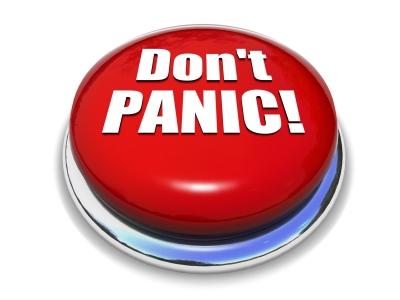Posted on 25 November 2020 Comments (0)
Tags: 2020 Presence, Attitude, Behaviors, Brand Impact, Business Etiquette, Business Social Etiquette, Career Builders, communication, Compassion, Confidence, Confidence Builders, Humor, Visual Presence
 Humor goes a long way towards helping to relax difficult situations and to put everyone at ease. I am by nature a serious person, but I find adding a dash of humor makes the day and a meeting easier. Humor is not always about telling jokes; it is also smiling and looking at the lighter side of things. A laugh once a day makes life a lot easier. “Humor is mankind’s greatest blessing,” said author Mark Twain.
Humor goes a long way towards helping to relax difficult situations and to put everyone at ease. I am by nature a serious person, but I find adding a dash of humor makes the day and a meeting easier. Humor is not always about telling jokes; it is also smiling and looking at the lighter side of things. A laugh once a day makes life a lot easier. “Humor is mankind’s greatest blessing,” said author Mark Twain.
 During the pandemic, it is proper etiquette to politely refuse an invitation if masks will not be worn. Ask the hosts before the event if individuals will be required to wear a mask. If masks are not required, there is no need to say you will not be attending due to the lack of masks. Politely state that you will not be able to attend. If they ask why, it is your personal decision whether to let them know why you will not be attending. It is important to respect others and respect how one feels about the wearing of masks.
During the pandemic, it is proper etiquette to politely refuse an invitation if masks will not be worn. Ask the hosts before the event if individuals will be required to wear a mask. If masks are not required, there is no need to say you will not be attending due to the lack of masks. Politely state that you will not be able to attend. If they ask why, it is your personal decision whether to let them know why you will not be attending. It is important to respect others and respect how one feels about the wearing of masks.
 In the middle of a global pandemic, new etiquette rules must be considered. One must be aware of local guidelines as to the number of people allowed at gatherings (currently fifty people or fewer in Illinois). Always indicate on the invitation that wearing masks and social distancing should be honored by attendees. This means a mask is required and attendees must stay six feet apart. Offer masks to those who attend without a mask and indicate, in a non-confrontational manner, that masks must be worn. If someone chooses to not wear a mask, let them know it is for their safety and the safety of others and they will not be able to participate without a mask.
In the middle of a global pandemic, new etiquette rules must be considered. One must be aware of local guidelines as to the number of people allowed at gatherings (currently fifty people or fewer in Illinois). Always indicate on the invitation that wearing masks and social distancing should be honored by attendees. This means a mask is required and attendees must stay six feet apart. Offer masks to those who attend without a mask and indicate, in a non-confrontational manner, that masks must be worn. If someone chooses to not wear a mask, let them know it is for their safety and the safety of others and they will not be able to participate without a mask.
Posted on 29 July 2020 Comments (0)
Tags: Anna's Posts, Attitude, Behaviors, Brand Impact, Business Etiquette, communication, Confidence Builders, Critical Thinking, Emtional Intelligence, Leadership, Relationship Building, Visual Presence, Voice
 It is easy to be misunderstood in virtual meetings. Facial cues and tone of voice are more difficult to discern. In order to avoid misunderstandings and potential conflict, try to ask questions without making judgements. When differences in opinions or viewpoints arise, offer another point of view as a way to create like thinking. Keeping these tactics in mind during virtual meetings will help to create a strong team.
It is easy to be misunderstood in virtual meetings. Facial cues and tone of voice are more difficult to discern. In order to avoid misunderstandings and potential conflict, try to ask questions without making judgements. When differences in opinions or viewpoints arise, offer another point of view as a way to create like thinking. Keeping these tactics in mind during virtual meetings will help to create a strong team.
 As a consultant and a coach with a home office, I have found keeping work separate from non-office life to be important. With 24 hours in a day, work at home can easily spill over to personal time at home. Keeping a schedule with defined hours of work and non-work time can be helpful. Additionally helpful is having a separate office space (even if it’s small) in order to keep papers and work items in one area. Scheduling client calls and returning calls during your “office hours” keeps boundaries in place and prevents burnout.
As a consultant and a coach with a home office, I have found keeping work separate from non-office life to be important. With 24 hours in a day, work at home can easily spill over to personal time at home. Keeping a schedule with defined hours of work and non-work time can be helpful. Additionally helpful is having a separate office space (even if it’s small) in order to keep papers and work items in one area. Scheduling client calls and returning calls during your “office hours” keeps boundaries in place and prevents burnout.
 Business lunches are best left to get to know each other and to begin to build a flow of a relationship. It is a time to set some common goals in an informal way. Some pitfalls to avoid are not checking in with the client regarding their time guidelines, such as the time to meet and the length of time to meet. Be sure to consider where they might like to eat. Choose a place with a relaxing setting, that is quiet enough for a conversation, and can accommodate any dietary considerations they may have. Invitations must have been sent based on their scheduling needs. Conversation is light. Talk business only if the guest brings it up in conversation. Controversial subjects are best avoided.
Business lunches are best left to get to know each other and to begin to build a flow of a relationship. It is a time to set some common goals in an informal way. Some pitfalls to avoid are not checking in with the client regarding their time guidelines, such as the time to meet and the length of time to meet. Be sure to consider where they might like to eat. Choose a place with a relaxing setting, that is quiet enough for a conversation, and can accommodate any dietary considerations they may have. Invitations must have been sent based on their scheduling needs. Conversation is light. Talk business only if the guest brings it up in conversation. Controversial subjects are best avoided.
 Whether attending a business social event or just a personal social event, there are some key rules to follow in order to be a gracious guest:
Whether attending a business social event or just a personal social event, there are some key rules to follow in order to be a gracious guest:
Promptly let the host know whether you are attending the event or not (RSVP).
Let the host know if you are going to be late.
Make the host aware ahead of time if there are certain food allergies or food requirements (ex. vegan or vegetarian) of which they should be aware. (Depending on the situation and event, the host may or may not be able to accommodate food requests.)
Send a thank you gift or note within a week after attending the event.
 Arriving on time or early to a commitment you’ve made is a key element of being a true professional. Recently, an organization I was working with told me that one of their major complaints was about people who were always late—whether to work, meetings, or interviews. Some people think that being late indicates they have high demands on their time (which may be true). However, it shows a lack of respect for the individuals they keep waiting and the time those individuals are wasting while waiting. Being late discounts a person’s professionalism and any capital, they may have previously earned.
Arriving on time or early to a commitment you’ve made is a key element of being a true professional. Recently, an organization I was working with told me that one of their major complaints was about people who were always late—whether to work, meetings, or interviews. Some people think that being late indicates they have high demands on their time (which may be true). However, it shows a lack of respect for the individuals they keep waiting and the time those individuals are wasting while waiting. Being late discounts a person’s professionalism and any capital, they may have previously earned.
 The term “RSVP” is the abbreviation of the French phrase Réspondez s’il vous plait. It means “Please respond” – and it seems to be a dying habit. For years it was taken for granted that people would respond. Today, it’s a rarity to receive a response to an invitation. Non-responses are typical. Recently, I attended an event where the host had to track down invitees who had not responded. Why the rudeness? Not RSVPing shows a lack of etiquette and courtesy. It is good manners to respond within 24 hours of receiving the invite—even if just to say that you are not sure you are able to attend. After receiving the email invite regarding the recent event, I let the host know I might not be able to attend due to having a conflict with another event. The host was thrilled to receive the “maybe”. True professionals respond to their emails within 24 hours. One organization’s CEO has the firm rule that her staff members answer communications within 24 hours. It is a good rule for individuals and for businesses.
The term “RSVP” is the abbreviation of the French phrase Réspondez s’il vous plait. It means “Please respond” – and it seems to be a dying habit. For years it was taken for granted that people would respond. Today, it’s a rarity to receive a response to an invitation. Non-responses are typical. Recently, I attended an event where the host had to track down invitees who had not responded. Why the rudeness? Not RSVPing shows a lack of etiquette and courtesy. It is good manners to respond within 24 hours of receiving the invite—even if just to say that you are not sure you are able to attend. After receiving the email invite regarding the recent event, I let the host know I might not be able to attend due to having a conflict with another event. The host was thrilled to receive the “maybe”. True professionals respond to their emails within 24 hours. One organization’s CEO has the firm rule that her staff members answer communications within 24 hours. It is a good rule for individuals and for businesses.
Posted on 21 August 2018 Comments (0)
Tags: Anna's Posts, Attitude, Behaviors, Business Etiquette, Business Social Etiquette, Career, Career Builders, Civility, communication, Executive Presence, Leadership, Leadership Presence
 Today, more than ever in the professional and personal world:
Today, more than ever in the professional and personal world:
1. Speak truth not fiction
2. Admit a mistake by saying “I was wrong” and giving an apology
3. Only say nice things or avoid saying anything
4. Be on time for meetings or conference calls
5. Answer emails within 24 hours
 Humor goes a long way towards helping to relax difficult situations and to put everyone at ease. I am by nature a serious person, but I find adding a dash of humor makes the day and a meeting easier. Humor is not always about telling jokes; it is also smiling and looking at the lighter side of things. A laugh once a day makes life a lot easier. “Humor is mankind’s greatest blessing,” said author Mark Twain.
Humor goes a long way towards helping to relax difficult situations and to put everyone at ease. I am by nature a serious person, but I find adding a dash of humor makes the day and a meeting easier. Humor is not always about telling jokes; it is also smiling and looking at the lighter side of things. A laugh once a day makes life a lot easier. “Humor is mankind’s greatest blessing,” said author Mark Twain.

 During the pandemic, it is proper etiquette to politely refuse an invitation if masks will not be worn. Ask the hosts before the event if individuals will be required to wear a mask. If masks are not required, there is no need to say you will not be attending due to the lack of masks. Politely state that you will not be able to attend. If they ask why, it is your personal decision whether to let them know why you will not be attending. It is important to respect others and respect how one feels about the wearing of masks.
During the pandemic, it is proper etiquette to politely refuse an invitation if masks will not be worn. Ask the hosts before the event if individuals will be required to wear a mask. If masks are not required, there is no need to say you will not be attending due to the lack of masks. Politely state that you will not be able to attend. If they ask why, it is your personal decision whether to let them know why you will not be attending. It is important to respect others and respect how one feels about the wearing of masks. In the middle of a global pandemic, new etiquette rules must be considered. One must be aware of local guidelines as to the number of people allowed at gatherings (currently fifty people or fewer in Illinois). Always indicate on the invitation that wearing masks and social distancing should be honored by attendees. This means a mask is required and attendees must stay six feet apart. Offer masks to those who attend without a mask and indicate, in a non-confrontational manner, that masks must be worn. If someone chooses to not wear a mask, let them know it is for their safety and the safety of others and they will not be able to participate without a mask.
In the middle of a global pandemic, new etiquette rules must be considered. One must be aware of local guidelines as to the number of people allowed at gatherings (currently fifty people or fewer in Illinois). Always indicate on the invitation that wearing masks and social distancing should be honored by attendees. This means a mask is required and attendees must stay six feet apart. Offer masks to those who attend without a mask and indicate, in a non-confrontational manner, that masks must be worn. If someone chooses to not wear a mask, let them know it is for their safety and the safety of others and they will not be able to participate without a mask. It is easy to be misunderstood in virtual meetings. Facial cues and tone of voice are more difficult to discern. In order to avoid misunderstandings and potential conflict, try to ask questions without making judgements. When differences in opinions or viewpoints arise, offer another point of view as a way to create like thinking. Keeping these tactics in mind during virtual meetings will help to create a strong team.
It is easy to be misunderstood in virtual meetings. Facial cues and tone of voice are more difficult to discern. In order to avoid misunderstandings and potential conflict, try to ask questions without making judgements. When differences in opinions or viewpoints arise, offer another point of view as a way to create like thinking. Keeping these tactics in mind during virtual meetings will help to create a strong team. As a consultant and a coach with a home office, I have found keeping work separate from non-office life to be important. With 24 hours in a day, work at home can easily spill over to personal time at home. Keeping a schedule with defined hours of work and non-work time can be helpful. Additionally helpful is having a separate office space (even if it’s small) in order to keep papers and work items in one area. Scheduling client calls and returning calls during your “office hours” keeps boundaries in place and prevents burnout.
As a consultant and a coach with a home office, I have found keeping work separate from non-office life to be important. With 24 hours in a day, work at home can easily spill over to personal time at home. Keeping a schedule with defined hours of work and non-work time can be helpful. Additionally helpful is having a separate office space (even if it’s small) in order to keep papers and work items in one area. Scheduling client calls and returning calls during your “office hours” keeps boundaries in place and prevents burnout. Business lunches are best left to get to know each other and to begin to build a flow of a relationship. It is a time to set some common goals in an informal way. Some pitfalls to avoid are not checking in with the client regarding their time guidelines, such as the time to meet and the length of time to meet. Be sure to consider where they might like to eat. Choose a place with a relaxing setting, that is quiet enough for a conversation, and can accommodate any dietary considerations they may have. Invitations must have been sent based on their scheduling needs. Conversation is light. Talk business only if the guest brings it up in conversation. Controversial subjects are best avoided.
Business lunches are best left to get to know each other and to begin to build a flow of a relationship. It is a time to set some common goals in an informal way. Some pitfalls to avoid are not checking in with the client regarding their time guidelines, such as the time to meet and the length of time to meet. Be sure to consider where they might like to eat. Choose a place with a relaxing setting, that is quiet enough for a conversation, and can accommodate any dietary considerations they may have. Invitations must have been sent based on their scheduling needs. Conversation is light. Talk business only if the guest brings it up in conversation. Controversial subjects are best avoided. Arriving on time or early to a commitment you’ve made is a key element of being a true professional. Recently, an organization I was working with told me that one of their major complaints was about people who were always late—whether to work, meetings, or interviews. Some people think that being late indicates they have high demands on their time (which may be true). However, it shows a lack of respect for the individuals they keep waiting and the time those individuals are wasting while waiting. Being late discounts a person’s professionalism and any capital, they may have previously earned.
Arriving on time or early to a commitment you’ve made is a key element of being a true professional. Recently, an organization I was working with told me that one of their major complaints was about people who were always late—whether to work, meetings, or interviews. Some people think that being late indicates they have high demands on their time (which may be true). However, it shows a lack of respect for the individuals they keep waiting and the time those individuals are wasting while waiting. Being late discounts a person’s professionalism and any capital, they may have previously earned. The term “RSVP” is the abbreviation of the French phrase Réspondez s’il vous plait. It means “Please respond” – and it seems to be a dying habit. For years it was taken for granted that people would respond. Today, it’s a rarity to receive a response to an invitation. Non-responses are typical. Recently, I attended an event where the host had to track down invitees who had not responded. Why the rudeness? Not RSVPing shows a lack of etiquette and courtesy. It is good manners to respond within 24 hours of receiving the invite—even if just to say that you are not sure you are able to attend. After receiving the email invite regarding the recent event, I let the host know I might not be able to attend due to having a conflict with another event. The host was thrilled to receive the “maybe”. True professionals respond to their emails within 24 hours. One organization’s CEO has the firm rule that her staff members answer communications within 24 hours. It is a good rule for individuals and for businesses.
The term “RSVP” is the abbreviation of the French phrase Réspondez s’il vous plait. It means “Please respond” – and it seems to be a dying habit. For years it was taken for granted that people would respond. Today, it’s a rarity to receive a response to an invitation. Non-responses are typical. Recently, I attended an event where the host had to track down invitees who had not responded. Why the rudeness? Not RSVPing shows a lack of etiquette and courtesy. It is good manners to respond within 24 hours of receiving the invite—even if just to say that you are not sure you are able to attend. After receiving the email invite regarding the recent event, I let the host know I might not be able to attend due to having a conflict with another event. The host was thrilled to receive the “maybe”. True professionals respond to their emails within 24 hours. One organization’s CEO has the firm rule that her staff members answer communications within 24 hours. It is a good rule for individuals and for businesses. Today, more than ever in the professional and personal world:
Today, more than ever in the professional and personal world:

